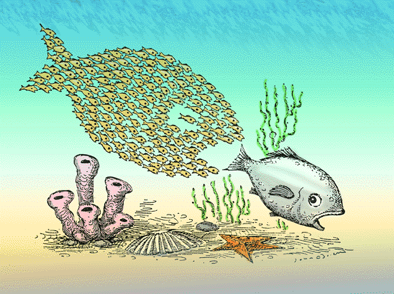Emergence’s devil haunts the moral enhancer’s kingdom come
It is 2025. Society has increasingly realised the importance of breaking evolution’s chains and enhancing the human condition. Large grants are awarded for building sci-fi-like laboratories to search for and create the ultimate moral enhancer. After just a few years, humanity believes it has made one of its most major breakthroughs: a pill which will rid our morality of all its faults. Without any side-effects, it vastly increases our ability to cooperate and to think rationally on moral issues, while also enhancing our empathy and our compassion for the whole of humanity. By shifting individuals’ socio-value orientation towards cooperation, this pill will allow us to build safe, efficient and peaceful societies. It will cast a pro-social paradise on earth, the moral enhancer kingdom come.
I believe we better think twice before endeavouring ourselves into this pro-social paradise on the cheap. Not because we will lose “the X factor”, not because it will violate autonomy, and not because such a drug would cause us to exit our own species. Even if all those objections are refuted, even if the drug has no side-effects, even if each and every human being, by miracle, willingly takes the drug without any coercion whatsoever, even then, I contend we could still have trouble.
Read More »Emergence’s devil haunts the moral enhancer’s kingdom come

